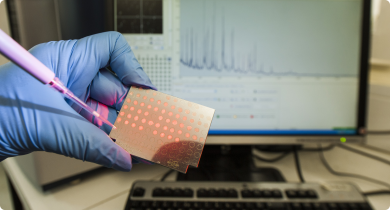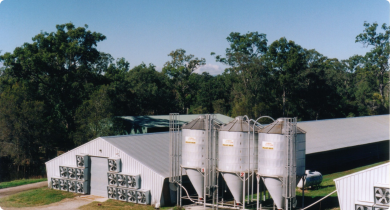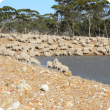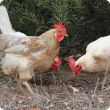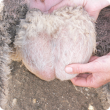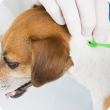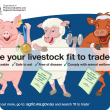DDLS - Animal pathology
DDLS – Animal pathology (formerly Animal Health Laboratories) is a service area under the DAFWA Diagnostic Laboratory Services (DDLS) - an amalgamation of DAFWA plant and animal laboratory and inspection services.
The DDLS – Animal pathology is a National Association of Testing Authorities (NATA) accredited laboratory in the field of veterinary testing. This service provides effective and efficient laboratory capacity, policy input, research and testing for early diagnosis of notifiable diseases and verification for market access importation protocols for the state's livestock industries.
We undertake notifiable disease rule outs and support the investigation of more than 1000 stock disease incidents and 200 animal exports consignments annually. We research significant livestock diseases and improve and develop new tests to support for research on animal production.
Filter by search
Filter by topic
- (-) Remove Livestock health & diseases filter Livestock health & diseases
- Diseases (84) Apply Diseases filter
- Pests, weeds & diseases (84) Apply Pests, weeds & diseases filter
- Biosecurity & quarantine (84) Apply Biosecurity & quarantine filter
- (-) Remove Biosecurity filter Biosecurity
- Livestock biosecurity (83) Apply Livestock biosecurity filter
- Livestock disease surveillance (81) Apply Livestock disease surveillance filter
- Livestock & animals (72) Apply Livestock & animals filter
- Livestock species (58) Apply Livestock species filter
- Sheep (26) Apply Sheep filter
- Emergency animal disease preparedness (26) Apply Emergency animal disease preparedness filter
- Livestock management (26) Apply Livestock management filter
- Beef cattle (20) Apply Beef cattle filter
- Dairy cattle (16) Apply Dairy cattle filter
- Management & reproduction (11) Apply Management & reproduction filter
- Poultry & birds (10) Apply Poultry & birds filter
- Goats (8) Apply Goats filter
- Pigs (7) Apply Pigs filter
- Livestock movement & identification (6) Apply Livestock movement & identification filter
- Feeding & nutrition (6) Apply Feeding & nutrition filter
- Horses (6) Apply Horses filter
- Control methods (5) Apply Control methods filter
- Chemicals (5) Apply Chemicals filter
- Wildlife biosecurity (4) Apply Wildlife biosecurity filter
- Emergency response (4) Apply Emergency response filter
- Veterinary chemicals (4) Apply Veterinary chemicals filter
- Residues in livestock (3) Apply Residues in livestock filter
- Preventing residues (3) Apply Preventing residues filter
- Quarantine (1) Apply Quarantine filter
- Stockfeed (1) Apply Stockfeed filter
- Water (1) Apply Water filter
- Water management (1) Apply Water management filter
- Livestock research & development (1) Apply Livestock research & development filter
- Climate, land & water (1) Apply Climate, land & water filter
- Export services (1) Apply Export services filter
- Food, export & investment (1) Apply Food, export & investment filter
- Importing animals (1) Apply Importing animals filter
- Importing to Western Australia (1) Apply Importing to Western Australia filter

